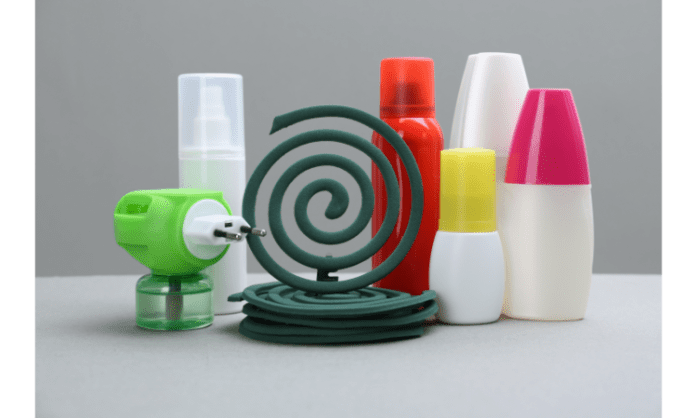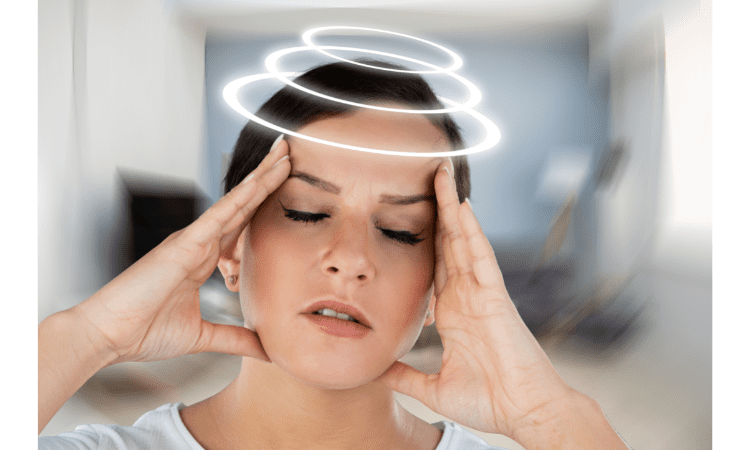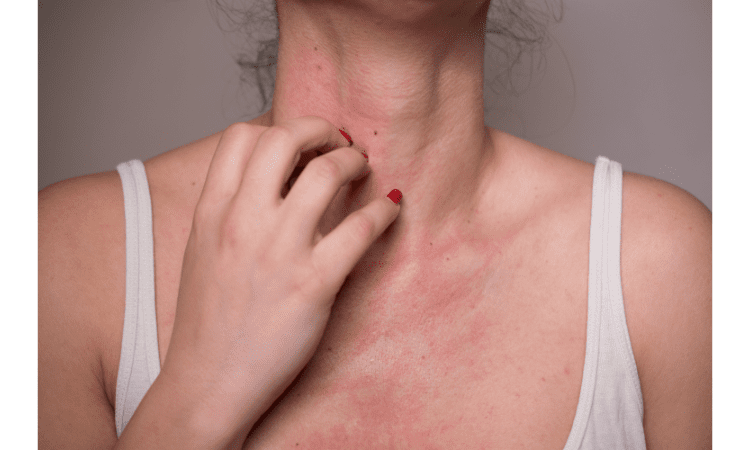
Insect repellents are an important part of life, especially for people who live in tropical areas or during the summer months. They can be used to protect against mosquitoes, ticks, and other biting insects. However, insect repellents can have side effects that may make you feel uncomfortable or nauseous.
Many people believe that insects are simply a nuisance, but in fact, they can be a serious health hazard. Insects can spread disease, and some species of insects bite or sting their prey. In some cases, the bites or stings from these insects can cause serious illness or even death. Insect repellents reduce the likelihood of being bitten or stung by an insect. Insect repellents are one of the most important things to pack when you’re traveling. Insect repellents are a great way to keep mosquitoes and other pests away from you and your home. However, there are some side effects that you should be aware of before using them.
What are insect repellents?

Insect repellents are a type of skin care product used to repel insects, including mosquitoes and ticks. They are applied to the skin or clothing to prevent insect bites, stings, and infestations. While some people use them to prevent getting bitten by bugs in the first place, others apply them as a treatment after being bitten or stung by an insect-like someone who is allergic to bee stings might take antihistamines after being stung by an actual bee.
Many types of insect repellents exist sprays, lotions, and creams; coils that you place around your bed; candles that release chemicals into the air when lit; even perfumes designed specifically for use in hot weather. But perhaps the most common way people use these products is by applying them directly onto their bodies before going outdoors where there might be more insects than usual (such as camping).
Why it is used for?

Insect repellent is used to protect against insect bites and the diseases they carry. Insect repellents are used to keep insects away from you. They work by releasing chemicals that repel insects, and they can be applied to your skin or clothing. Insect bites can cause itching, swelling, pain, and even allergic reactions in some people. The main reason why people use insect repellents is to avoid being bitten by insects. When you are bitten by insects, they may leave behind diseases such as malaria, dengue fever, and many others. These diseases can be fatal if not treated properly.
As an example, mosquitoes that bite you can transmit malaria or the West Nile virus. You may also be exposed to Lyme disease if a tick attaches itself to your skin and feeds on your blood.
Also Read: How effective is pine tar soap as an insect repellent?
Side effects
The most common side effects of insect repellents are skin irritation, allergic reactions and stinging.
The cause of side effects is the chemicals in the products that attack insects but can also affect humans. The active ingredients in insect repellents include DEET, picaridin, permethrin, and oil of lemon eucalyptus (p-menthane-3-8-diol or PMD). While these chemicals provide a great deal of protection against mosquitoes and ticks they also have some drawbacks.
The main side effect you will experience is a skin irritation caused by the chemical’s contact with your bloodstream or if it touches your eyes or mouth after you’ve applied it to your skin. Allergic reactions are rare but they do occur so always check labels when buying repellent products to ensure they’re safe for use on sensitive areas such as around the eyes or mouth area (if using sprays). You should also avoid getting these products near open cuts because they may cause pain or swelling around injured areas if applied directly onto them without washing them first off.
Irritation of skin

Skin irritation is the most common side effect of insect repellents and can be caused by any of the active ingredients.
One of the most common forms of skin irritation is a skin rash, which may look like redness or swelling around the area where you applied the insect repellent. If you experience these symptoms, wash off your skin with soap and water as soon as possible and then apply moisturizer to your skin until the rash goes away.
Another form of skin irritation can occur when an insect repellent causes burning or itching sensations on your face, neck, hands and other areas where it was applied. If this happens to you after using an insect repellent with DEET in it, try washing off any remaining residue with soap and water before bedtime so that no biting insects will come near enough to bite those areas while you sleep.
Headache

Another common side effect of insect repellents is headaches. Insect repellents contain chemicals that can cause headaches, so you should always read the product label before applying any type of insect repellent. If you experience a headache after applying an insect repellent, it may be due to the heat and sweat generated by your body in direct sunlight. To reduce this side effect, apply a small amount of ice to your forehead for short periods of time every few minutes until the symptoms subside (or until you’re ready to go inside). If you experience headaches after using an insect repellent, try using a cream or lotion instead. The chemicals in creams and lotions can help reduce histamine release and decrease the likelihood that you will experience headaches.
Breathing problem

Breathing problems are the most common side effect of using insect repellents. In fact, more than half of all people who use insect repellents experience breathing problems, such as nosebleeds or irritation in their throat or lungs. The chemicals in these products can cause inflammation in the respiratory tract and nasal passages, which can lead to coughing and difficulty breathing.
There are two types of insect repellent that can cause breathing problems: DEET and permethrin (a chemical typically found in clothes). If you’re planning on going outside during peak mosquito season and want to avoid getting bit by mosquitoes, it’s important to be aware of what kind of insect repellent you’re using so that you can protect yourself from any potential health risks associated with it.
Memory loss

Memory loss is a common side effect of insect repellents. It is caused by the ingredients used in the repellents, which include DEET and picaridin.
If you suffer from memory loss after using a mosquito repellent, it can be either short-term or long-term memory loss. the chemicals in insect repellent can cause a chemical imbalance in the brain that leads to memory loss.
To avoid this side effect, opt for natural insect repellents that do not contain chemical ingredients (e.g., citronella oil).
Stiffness in the joints

The stiffness in the joints is a common side effect of insect repellents. It is caused by the substance DEET, which is a chemical used in many insect repellents. The most common symptom is joint pain, especially in the ankles, knees, wrists, and elbows. The pain can be intense enough to cause difficulty moving around or even walking. Insect repellents can cause joint stiffness in some people. This is due to the chemicals used in the repellent, which can cause inflammation of the joints and muscles.
If you are experiencing this side effect, it is important that you stop using any products containing DEET immediately and see your doctor right away.
Dizziness

Dizziness is a feeling of lightheadedness or faintness. It’s not a disease, but rather a symptom that can be caused by many things, including medication and drop in blood pressure. Dizziness can also be caused by standing up too quickly (which causes the brain to slosh around) or by rapid head movements such as shaking your head back and forth.
Dizziness is a common side effect of insect repellents. While it is usually mild, it can cause a person to feel dizzy or lightheaded, which could lead to fainting. If you experience dizziness or lightheadedness when using an insect repellent, be sure to rest and drink plenty of fluids until the symptoms subside.
Nausea

Nausea is one of the most common side effects of insect repellents. The reason that nausea occurs after applying insect repellent is that the chemicals in the product irritate your skin. The irritation causes your body to release histamine and prostaglandins which make you feel sick to your stomach.
If you are experiencing nausea after using an insect repellent, try not to worry too much as it is a very common issue and not dangerous at all.
Allergies

Allergies are a common side effect of insect repellents, and the reason for this is that many of them contain DEET.
If you have allergies or are concerned about using an insect repellent on your child who has allergies, look for one that contains picaridin or oil of lemon eucalyptus instead of DEET. These sprays are effective at repelling mosquitos without causing any side effects in humans or animals. The chemicals in these products can cause an allergic reaction in your body, which can be mild or severe. Mild reactions include itching and rashes, while serious reactions include difficulty breathing, hives, and shock.
Conclusion
In conclusion, insect repellents are a great way to protect yourself from mosquitoes, ticks, and other harmful insects. The best part is that there are a wide variety of different types of repellents available for you to choose from. However, it is important to keep in mind that not all insect repellents are created equal. Some are better than others and some can even be harmful to your health. Therefore it is important to do your research before purchasing any type of insect repellent so that you can make an informed decision about what is best for you and your family.











